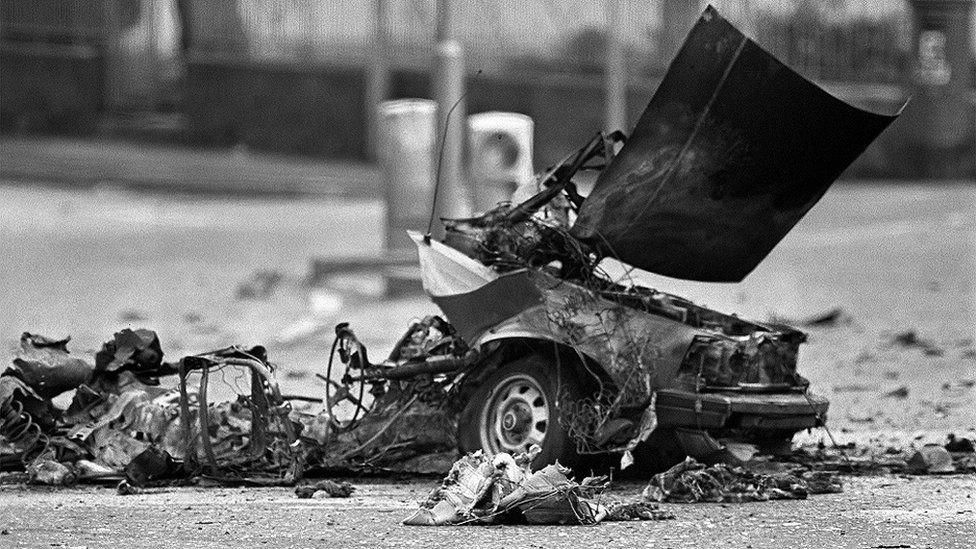Leo Varadkar says he has a right to want a united Ireland
- Published
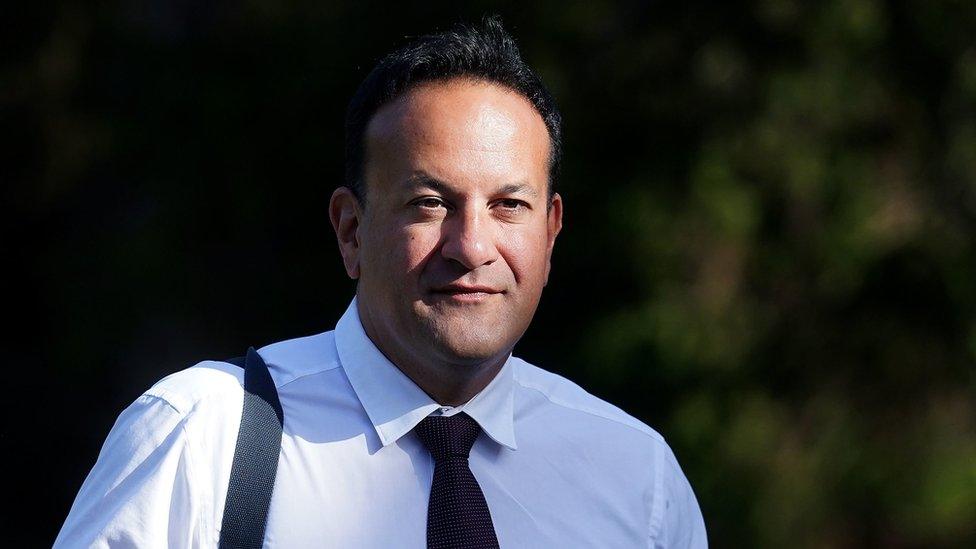
Leo Varadkar accused the UK government of double standards for criticising his united Ireland comments
The taoiseach (Irish prime minister) has described the UK government's criticism of his comments about a united Ireland as a "double standard".
Leo Varadkar said last week he believed he would see a united Ireland in his lifetime.
In response, Northern Ireland Secretary Chris Heaton Harris said the remarks were "unhelpful".
Mr Heaton-Harris said he needed the "clearest pitch possible" in efforts to restore Stormont's devolved government.
The institutions collapsed last year when the Democratic Unionist Party (DUP) withdrew in protest against post-Brexit trade barriers between Great Britain and Northern Ireland.
The DUP has said the Windsor Framework deal - struck by the UK government and European Union this year to address concerns with the Northern Ireland Protocol - does not go far enough.
It has been in talks with the government to seek further legislative assurances of Northern Ireland's place within the UK internal market.
Mr Varadkar said Prime Minister Rishi Sunak describes himself as a "proud unionist" and others in the UK government often speak about their commitment to the union.
"Not only do we accept that, we respect it," he told RTÉ.
"Why is there a double standard applied to Irish politicians when we say what's in our constitution, that we'd like to see a united Ireland and work towards it?"
Referencing the Northern Ireland secretary's remarks, Mr Varadkar said the Irish government has been "extremely helpful to the British government since the Brexit journey began".
In response, the Northern Ireland Office said under the Good Friday Agreement, "Northern Ireland will remain part of the UK for as long as its people wish for it to be".
A spokesman said: "We are absolutely clear that there is no basis to suggest that a majority of people in Northern Ireland wish to separate from the United Kingdom."
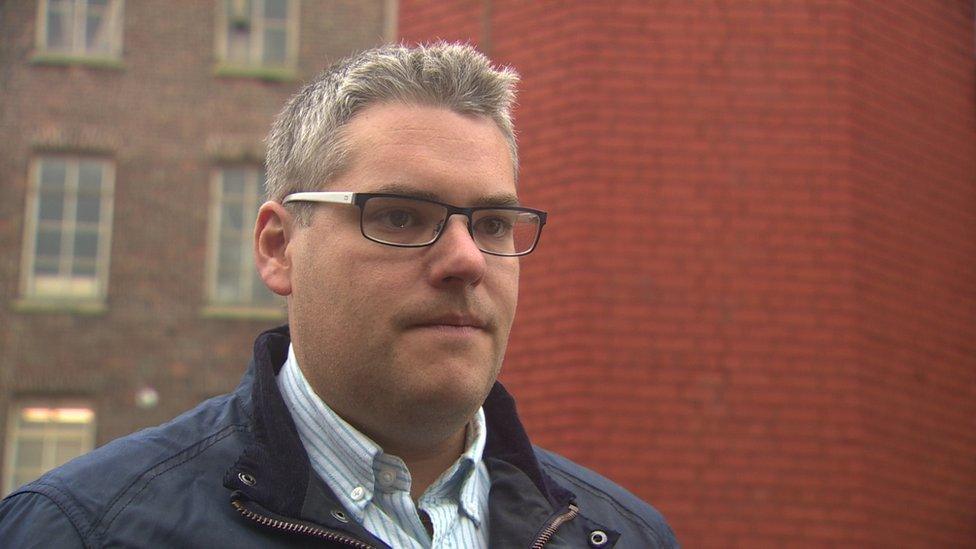
DUP deputy leader Gavin Robinson urged Leo Varadkar to "dial down his border poll rhetoric"
He said that under his leadership as taoiseach they negotiated several agreements with the UK government including the Northern Ireland Protocol.
"When they couldn't honour that agreement, we were the adults in the room, and we negotiated the Windsor framework," he added.
Mr Varadkar also reiterated his call for discussions about "alternative arrangements" if Stormont is not restored.
"There does come a point where these talks between the UK government and the DUP can't be ongoing forever and can't exclude others forever," he said.
"And we do need to sit down at some point and talk about what alternative arrangements can be put in place within the confines of the Good Friday Agreement."
On Tuesday, Northern Ireland Office minister Steve Baker said the UK government's talks with the DUP are in the final stages.
'Fundamental concerns'
But DUP MP Ian Paisley said he does not believe there will be a restoration of the Stormont institutions this year.
Meanwhile, responding to Mr Varadkar's comments, DUP deputy leader Gavin Robinson urged the Irish prime minister to "dial down his border poll rhetoric" and "spend his time focusing on building better relationships between his country and ours".
"There is overwhelming support for Northern Ireland remaining an integral part of the United Kingdom," he added.
"Leo Varadkar is playing domestic politics in his own country and must know that a border poll is the last thing Northern Ireland needs, that such a campaign would take the focus off the issues that need advanced and in the end having further harmed relationships would be defeated."
On Friday evening, the former Irish President Mary McAleese said demographics were moving in the direction of a united Ireland but she was "happy to leave it to the terms of the Good Friday Agreement".
"It was hard fought for," she added during an interview on RTÉ's The Late Late Show.
"If the day ever dawns when there is a majority that might be in favour of a united Ireland there is a plan for a referendum and it will be in the hands of those people."
Sinn Féin vice-president Michelle O'Neill called for the Stormont executive and assembly to be restored "so that we can push on and get back to business".
"Everyone has been more than reasonable in giving space and time, but there must be a clear limit and public patience is now running out," she said.
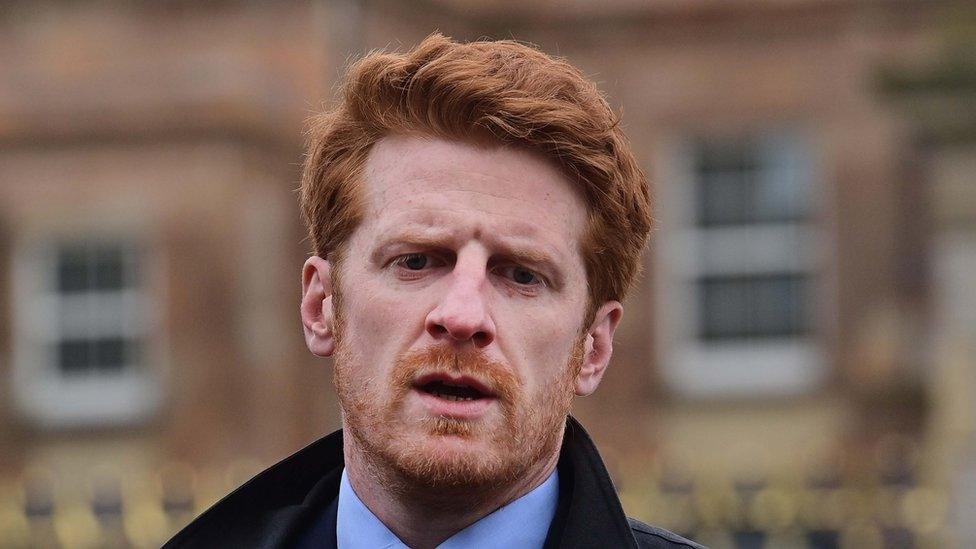
The SDLP's Matthew O'Toole said chaos was being created in Northern Ireland's public services
Social Democratic and Labour Party (SDLP) assembly member Matthew O'Toole said the absence of devolved government is "creating chaos" in Northern Ireland's public services.
He told the BBC's Good Morning Ulster programme that among the public, "anger is passing into contempt and that contempt is passing into indifference".
"That's really, really toxic in any democracy," he added.
"We're just creating chaos in our public services, we're making it impossible for decisions to be made, they're building up, they're stacking up throughout the system.
"I know the limitations of the institutions, the limitations of our structures and indeed the limitations of some of my colleagues, but that doesn't mean we don't need devolved government, because when we don't have it, frankly it makes things worse."
Independent unionist Claire Sugden added that although the devolved institutions are not functioning, assembly members are still working for their constituents.
"I can assure you my constituency office never stops," she said.
Related topics
- Published18 December 2020
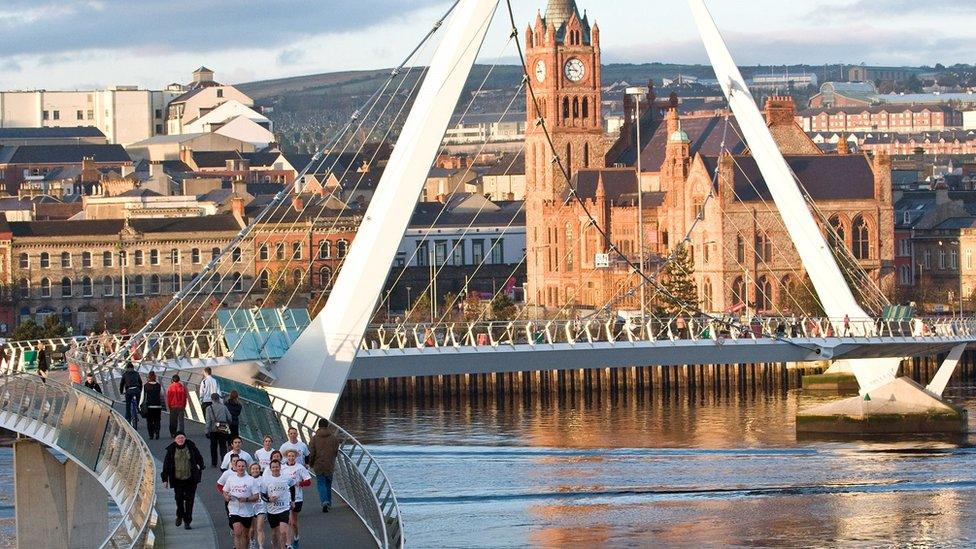
- Published11 January 2019

- Published6 September 2023
